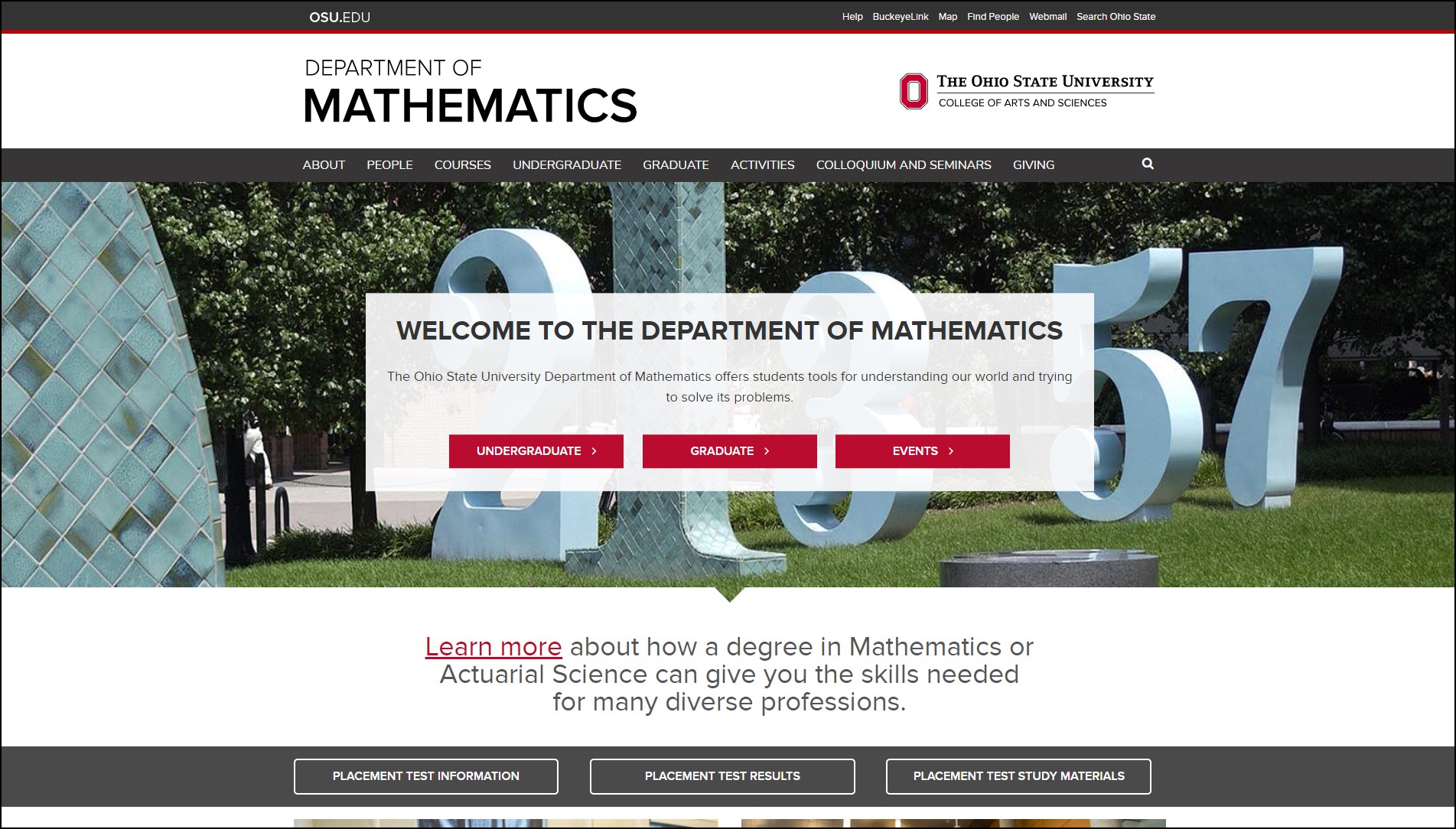
Ohio State PhD in Mathematics
The Ohio State PhD in Mathematics program has reached out to share information with you. The application is now open for Autumn 2024 admission, and applications are due by December 5, 2023 for full consideration. Standby applications will be accepted until January 28, 2024.
APPLY NOW!
Academic Profile
About eighty active graduate faculty on the Columbus and regional campuses are available to guide dissertation research. Virtually every area of theoretical mathematics is represented in our program, including number theory, ergodic theory, algebraic and differential geometry, combinatorics, mathematical logic, real and complex analysis, differential equations, topology, and various algebraic subfields. Prominent areas in applied mathematics are mathematical biology, topological data analysis, scientific computing, and fluid dynamics.
Preparation and Tracks
Prospective students can choose between the theoretical and applied track in their applications to our PhD program. The tracks differ in their first and second year course requirements but later merge to provide the same research opportunities. Applicants for the theoretical track should have completed year-long sequences in real analysis and abstract algebra, and those for the applied track are expected to have had at least one-semester courses in real analysis, advanced linear algebra, and computational science.
Training and Outcomes
Our graduate program fosters a highly active research environment in which students are introduced to cutting edge research topics, routinely publish papers, forge collaborations, travel to conferences, and organize their own research seminars. The majority of our recent PhD graduates have placed in competitive post-doctoral positions at strong research schools. Examples from recent years include IAS Princeton, Stanford, UCLA, UCSD, ETHZürich, Brown, Michigan, and Northwestern, as well as many other renowned state and international universities. Students interested in non-academic careers benefit from an industry-oriented lecture series and further professional training organized by our Erdős Institute. Recent non-academic placements include Google, Facebook, Amazon, NSA, and prestigious financial institutions.
Mentoring and Student Community
Our program places a strong emphasis on mentoring at all levels, following best practices of the National Math Alliance. Besides their formal academic advisors, beginning doctoral students are assigned faculty and peer mentors as desired who will coach them through their transition into graduate school. Our lively and collaborative graduate student community includes active student chapters of the AWM and SIAM, local student groups such as our Math Grad Student Association and our LGBTQ+ Math Alliance, as well as numerous student organized seminars and working groups.
Support
All doctoral students in good standing are guaranteed support as Graduate Teaching Associates for at least six years. Numerous funding opportunities without teaching duties include university fellowships as well as departmental and grant funded research associateships. Each semester, about 40% of our PhD students are supported on average through positions without teaching duties, allowing them to focus entirely on research.
Department of Mathematics
100 Math Tower | 231 W. 18th Avenue | Columbus, OH 43210
math.osu.edu | grad-info@math.osu.edu